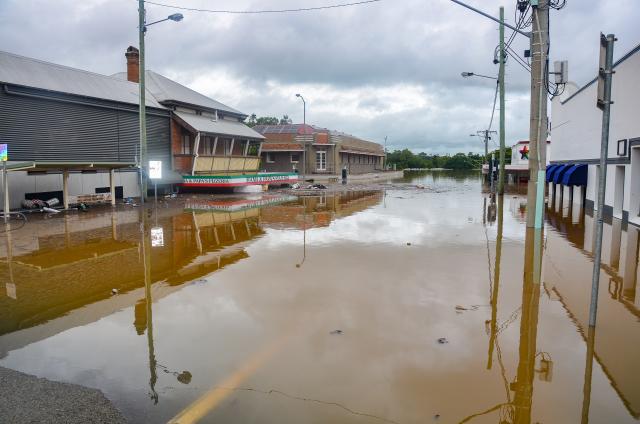The Australian Financial Complaints Authority (AFCA) has received more than 2000 complaints from flood-affected consumers in the year since the devastating floods with delays in claim handling the most significant issue.
There were 19 complaints in the Gympie local government area, from 10 postcodes, but policy holders were able to secure $41,901 between them after taking their complaints to the AFCA.
A spokesperson for the AFCA said disputes with insurers in the wake of the floods are the second largest “significant event” since AFCA’s inception in November 2018, behind the COVID pandemic.
The number of complaints escalated to AFCA nationwide is more than four times that received in relation to the next most significant weather-related event – the South-East Coast storms of February 2020, which generated 493 complaints.
“We are concerned by the volume of complaints that have been reaching us about delays by insurers,” AFCA’s Chief Ombudsman and Chief Executive, David Locke, said.
“We understand that the scale of this event has put pressure on insurers but these sorts of complaints can often be avoided through good, regular communication with customers.
“We would also prefer to see insurers resolving many more complaints within their own dispute resolution process, rather than consumers having to take the extra step of coming to AFCA – prolonging the time they spend in limbo, unable to get on with their lives,” he said.
AFCA was also concerned about a rise in complaints about general insurance overall, beyond the floods, Mr Locke said.
The ombudsman service has experienced a 65 per cent increase in general insurance complaints in the 2022-23 financial year so far.
As at February 23, it had registered 17,163 general insurance complaints, compared with 10,417 at the same point in the 2021-22 year.
With regards to the floods, delays in claim handling account for nearly 40 per cent of complaints to AFCA and a denial of claims because of policy exclusions or conditions accounted for one in three complaints (33 per cent) and disputes over claim amount represented one in four complaints (26 per cent).
Of those complaints, 40 per cent were resolved at the earliest stage of the AFCA’s process, at “registration and referral”, when a complaint is referred back to the firm to resolve.
This is below the 51 per cent early resolution rate for all complaints to AFCA in 2021-22.
Of the more than 2000 complaints, in the past year, flood-affected policyholders have secured nearly $13 million in compensation and refunds from insurers through the AFCA process.
AFCA’s Lead Ombudsmen for Insurance, Emma Curtis, said AFCA continues to encourage insurers to address complaints as quickly as possible in-house or as early as possible in the AFCA process.
“We acknowledge that the heavy flow of unresolved insurance complaints to AFCA means we have not been able to address complaints as quickly as usual,” Ms Curtis said.
“But we have increased our resources and capacity to handle insurance complaints significantly over the past year, and this is having a positive effect.
“By working closely with insurers to help them resolve simpler complaints early, and take a consumer-centric approach, we are confident complaint volumes will reduce over time.”
AFCA has also instituted new ways to regularly update consumers on the progress of their complaints
“We expect insurers to do all they can to assess claims promptly, to regularly inform customers about expected timeframes, and to clearly communicate about claims options,” she said.








